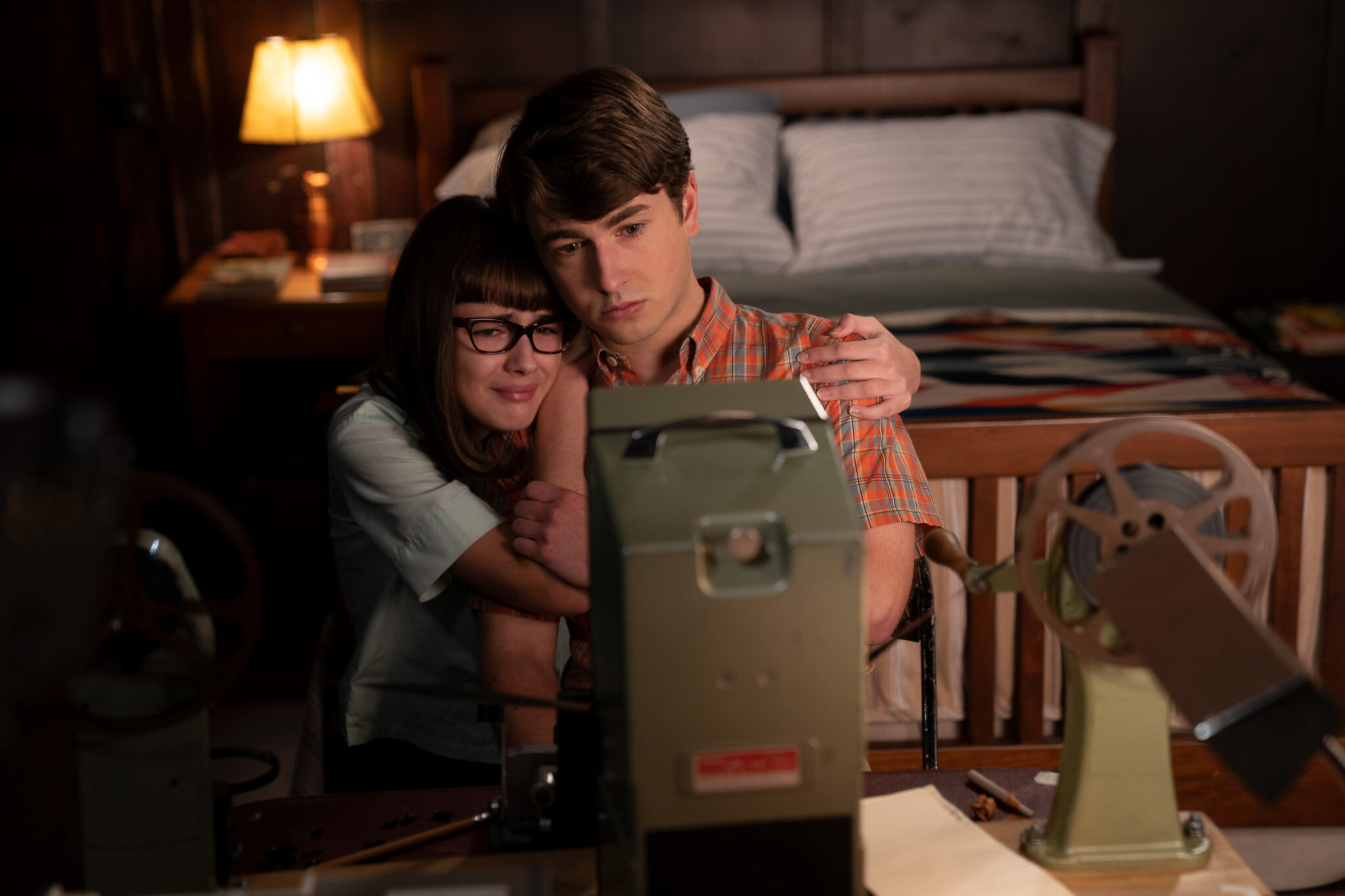
Steven Spielberg makes his return to the big screen in his most personal film yet. The Fabelmans is a semi-autobiographical film about the director’s childhood and love for film and directing. Even more than the movies, this film explores how our experiences growing up form who we grow to be as people. The Fabelmans are a family of six including father Burt (Paul Dano), mother Mitzi (Michelle Williams) son Sammy (mostly portrayed by Gabriel LaBelle during Sammy’s teenage years) and Sammy’s three sisters: Reggie (Julia Butters), Natalie (Keeley Karsten), and Lisa (Sophia Kopera). They are often joined by Burt’s best friend Benny (Seth Rogen). The film documents Sammy’s childhood as he falls in love with film as his family deals with constant change and strain.
As The Fabelmans increasingly garners Oscars buzz, there has already been griping among many that Hollywood seems poised to reward itself yet again for making a movie about movies or the movie industry. However, upon watching this film, I can report that this is not a movie about movies per se. Sure, moviemaking features prominently as we see Sammy, a camera, and his insatiable desire to create movies constantly throughout its runtime, but movies and the process behind making them are more of a conduit for Spielberg to offer commentary on the family dynamic and how our connections to others help to shape who we are and who we become. I’m sure The Fabelmans was a cathartic project for Spielberg and allowed him to confront some painful memories and experiences as he approaches the twilight of his life, but the general life lessons and observations in this film are universal and sure to resonate with many in the audience. In Sammy’s case, as we follow alongside his growth from young boy to young man, we are able to see how having a creative mother and a technically innovative father led how down the path toward becoming a gifted movie director, with of course Sammy being the fictional stand-in for the legendary Spielberg. All of Sammy’s experiences shape him as a person and through witnessing him dealing with the his family struggles and issues, we begin to consider how similar experiences shape people in the real world.
An additional way that Spielberg uses The Fabelmans and the filmmaking present in the film as a conduit is how Sammy’s camera is featured as almost another character in and of itself. Sammy’s camera operates as another set of eyes watching the events of the film and communicating with the other characters about the events of their lives and providing insight. The use of the film camera in this manner posits the piece of equipment as an extension of the eyes of the person who wields it, a tool that expands what is possible for the human eye to see. Most notably, this occurs in regard to a relationship between two of the characters that Sammy catches on film, capturing what his and other naked eyes could not. The intricacies of this relationship and how these people interacted would be lost upon a normal glance, but the intimacy that a camera can capture, the detail it can slow down and focus in on, the emotions and subtle changes in body language it can record, is like a window that can peer deep into the human soul.
The Fabelmans is a touching film about what makes us whole and how family will always be the tie that binds. Gabriel LaBelle performs capably as Sammy, but the performance sure to be most talked about is Michelle Williams’ turn as Mitzi with its emotional center and driving of the film’s theme. For all her flaws, both they and her positive attributes which Sammy inherited drive him on his path toward creation. Williams does superbly in making Mitzi a whole person, an obviously selfish person but not a wholly malevolent one, a description befitting of many. Paul Dano does well as Burt, his performance more subtle but still containing emotion as he deals with his family’s challenging times. The Fabelmans is a heartfelt look at what how family stays with us throughout our lives.
Image: Universal Pictures

